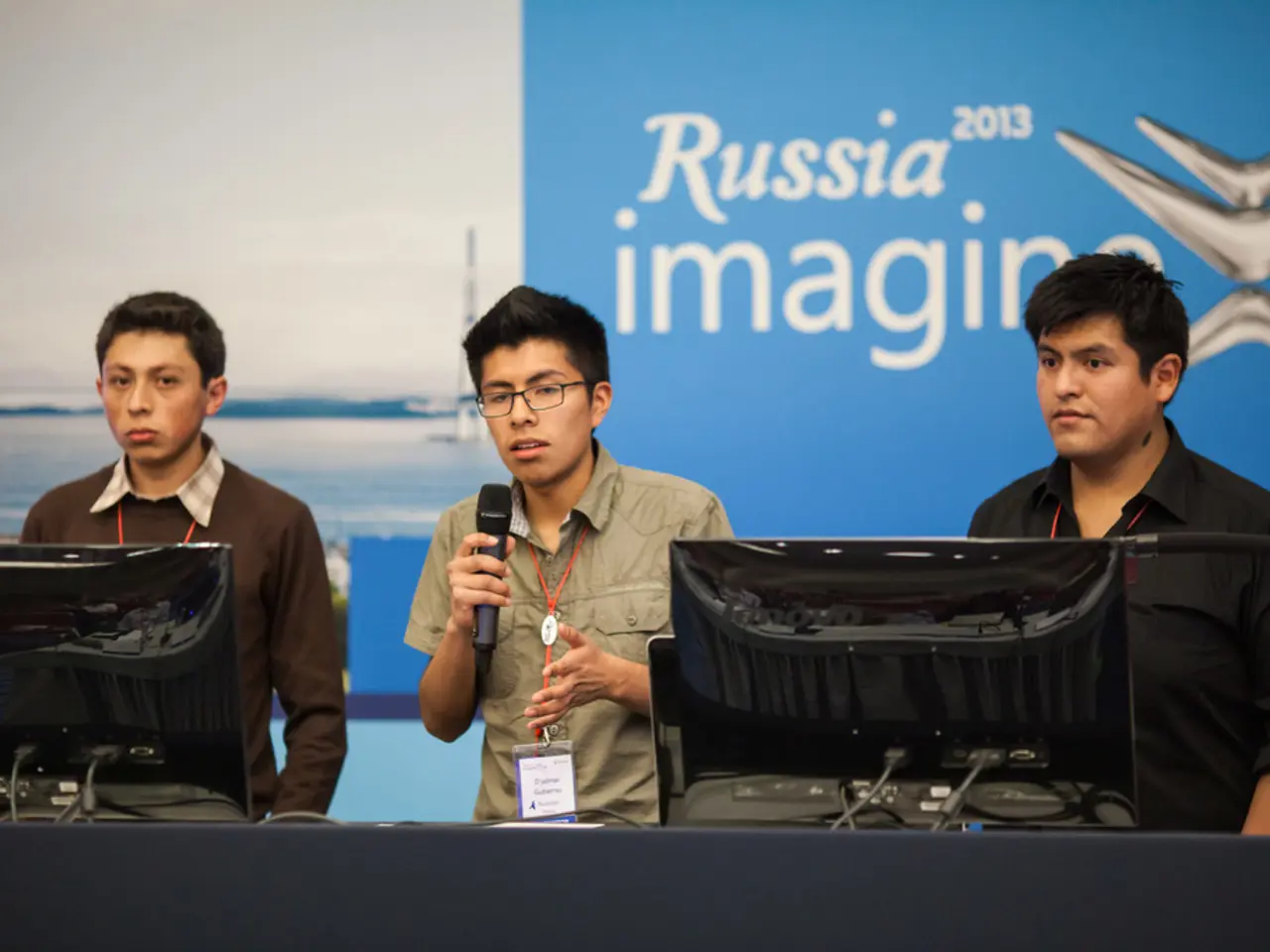Trump and Putin meet in Alaska, excluding Ukrainians from peace negotiations
In the heart of Europe, President Volodymyr Zelenskyy has been rallying support for Ukraine, leaving many Ukrainians with a sense of wary and skeptical attitudes towards the recent summit between Putin and Trump.
The Alaska summit, which occurred without Zelenskyy's involvement, has been seen as a victory for Putin and a diplomatic setback for Ukraine. This exclusion has raised alarm in Kyiv and Brussels, as Russia regains international legitimacy without concessions.
Analysts observe that Putin showed no readiness to compromise or to back away from his war aims during the summit. Russia continues its military offensive against Ukraine, including strikes on civilian targets, indicating Putin’s intention to persist with aggression despite diplomatic talks.
Many Ukrainians see the summit as part of Russia's strategy to buy time and politically weaken Ukraine rather than reach a peace deal. The continuation of air attacks and Russia's advances on the battlefield despite the meeting underscores this perception.
Putin’s rhetoric at the summit, which included claims about "security for Ukraine," is considered cynical by observers and likely deepens Ukrainian distrust of Russian intentions.
The Ukrainian leadership stresses the importance of weapons, funding, and international cooperation to maintain defense and security, implicitly contrasting with the perceived ineffectiveness of exclusive Trump-Putin diplomacy.
The absence of a clear cease-fire or peace agreement from the summit and Russia’s conditions on any future meeting with Zelenskyy—insisting all issues be pre-negotiated and questioning Zelenskyy’s legitimacy—add to Ukrainian concerns over Russia’s true aims and the diplomatic process’s sincerity.
Despite these concerns, Trump has expressed a desire for a follow-up meeting that would include Zelenskyy. Olena Humeniuk, a 46-year-old construction worker from central Kyiv, shares this sentiment. European leaders are staunchly backing Zelenskyy, saying no deals can be reached without Ukraine's full participation.
A Gallup poll asked Ukrainians if they now favoured a negotiated end to the war. Around 70% said, yes, they would. However, a poll by the Kyiv International Institute of Sociology asked Ukrainians if they would accept giving up territory that Russia now holds. 76% said, no, this is not acceptable.
As the dust settles from the Alaska summit, Ukraine hopes it will have a chance to lobby afterwards before any decisions might get made. Russia launched nearly a hundred drones at Ukraine overnight, a stark reminder of the ongoing conflict. Despite being exhausted by the war, most Ukrainians have not reached the point where they're ready to give up the roughly 20% of their territory that Russia controls.
Greg Myre, reporting from Kyiv, Ukraine, continues to cover the summit's impact on the ground. Olena Humeniuk also believes that negotiations are possible, but they must include Ukraine. Zelenskyy and the Europeans have been talking to Trump by phone in the past week or so, setting the stage for potential future discussions.
The Alaska summit, a diplomatic event that hampered Ukraine's representation, has been perceived as a victory for Putin and a loss for Ukraine in the realm of politics. This event, along with Russia's persistent aggression and lack of compromise in the face of war-and-conflicts, has led many Ukrainians to approach general-news regarding Russia with wary and skeptical attitudes. Despite Trump's expressed desire for a follow-up meeting that includes Zelenskyy, Ukrainians remain hopeful for negotiations, but they insist on their full participation in any diplomatic talks.







